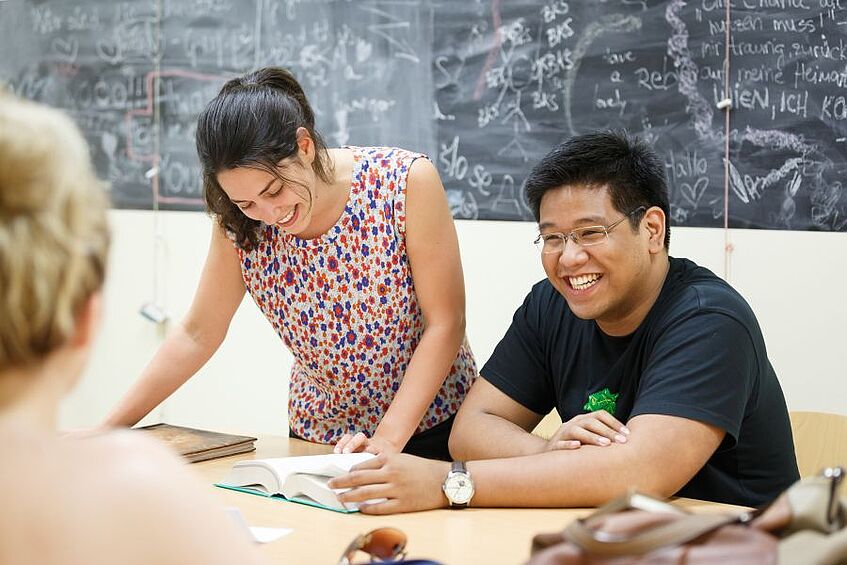Translation (Master)

© Universität Wien / derknopfdruecker.com
The Master programme in Translation combines practical translation work with the scientific concepts behind it. Under constantly changing social and technological conditions, graduates of the Master programme are able to act responsibly as translators in a globalised world, process acquired knowledge, apply their skills, develop independently, adapt flexibly to new fields of activity and help shape them competently.
You must list two languages when applying for admission: Your first language (level C2) and a second language (level C2). German is compulsory (level C2). A total of 14 different languages are offered.
At the beginning of the programme, you will learn basic skills for translation and interpreting, after which you will decide on a specialisation and at the same time determine the language canon.
Four specialisations are offered:
- Specialised translation and language industry
- Translating literature, audiovisual media, art
- Conference interpreting
- Dialogue interpreting
The two languages you chose when enrolling are binding and cannot be changed later on. Depending on your specialisation, you may expand your language canon. Level C2 must be demonstrated in all languages.
Each specialisation includes a work experience module, which includes work-related activities as part of an internship. Instead of the work placement, the ECTS can be completed in the form of courses.
Master of Arts
Degree Programme Code: 070
4 semesters / 120 ECTS credits
Language: German C2, English C2 and one additional language C2 → languages offered
NO entrance examination
Facts & Figures
- Students: n.a.
- Graduates in the last academic year: n.a.
- Number of semesters needed for graduation (median): n.a.
Data updated on: 03.12.2024
Attention
Instruction Language German
Please note that one of the languages of instruction of this programme is German. To start the degree programme, you need to hold a certificate of German proficiency on C2 level.
Admission Procedure
Information about the admission procedure
Information on Previous Studies:
In any case eligible degree programmes at the University of Vienna:
Getting started
Study Programme
Students can select and combine the following languages (according to the emphasis they choose):
German, Bosnian/Croatian/Serbian, Chinese, English, French, Italian, Japanese, Polish, Portuguese, Romanian, Russian, Spanish, Czech and Hungarian.
The master’s programme aims at preparing students for a future career as translators and interpreters. Additionally, students acquire and strengthen competences required for all areas of translation and interpreting, including translation competence, transcultural competence, language competence, research competence, technological competence as well as meta-skills and social competences.
Five Concepts
which you will deal with during your studies:
- Specialised translation
- Dialogue interpreting
- Simultaneous interpreting
- Consecutive interpreting
- Conference interpreting
... and many more.
Overview of the programme structure & topics
Here you find the current offer of courses for this programme to gain better insight into the topics and structure. For more information please click on the respective level.
After Graduation
Graduates can work in a wide range of areas:
- companies
- public and private institutions
- national and international organisations and media
- cultural institutions
- publishers, as well as translation agencies.
Graduates' Perspective on the Degree Programme
Graduates ...
- say that this degree programme receives the grade: 2.5 (good)
- rate the level of difficulty as: 3.8 (high)
→ These results are based on feedback from 118 graduates.
*You can find further assessments of the degree programme from its graduates’ perspective in the graduate survey of the master's programme in Translation (in German).
Graduates ...
- find employment within 1 month after graduation on average.
*You can find further information on career entry and career paths in the tracking of graduates "MA Translation".
